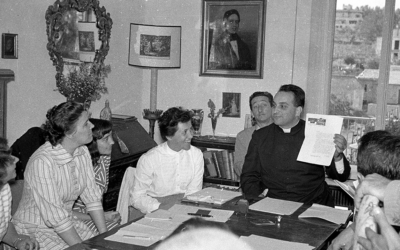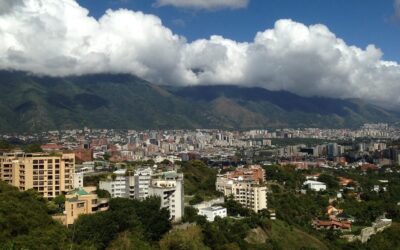
Mirta Zanella, a native of Argentina, from Mendoza, is married and has three children. She has known the spirituality of unity for quite some time now and has experienced that living the Word of God transforms us and also changes the reality around us.
One day her house keys disappeared, along with her husband’s salary and other valuable items. Who could it have been? The theft had to be necessarily carried out by someone close to the family. This caused Mirta great suffering, so much so that she was unable even to pray. Then, remembering that Jesus invites us to forgive, she does so, even for the person who stole from her.
A few days later she learnt that a lady in difficulty who begged for alms in the neighbourhood, and with whom she’d had a friendly relationship, had stolen from a neighbour’s house. While she threatened this neighbour with a gun, her husband stole the goods. Subsequently, even Mirta received serious threats from her and so she called the police to defend herself. The woman was arrested. After the trial that found her guilty of various crimes, she was sentenced to 17 years in prison.
In the following months Mirta’s husband suggested that she go visit her in prison, but this was not part of her plans. “No way,” she answered, also overtaken by fear. Sometime later there was a new request. This time it was the parish priest who invited her to accompany a group of ladies to the women’s prison where, for that matter, the woman who robbed her was also imprisoned. Somewhat confused, Mirta accepted the invitation, remembering the Word of Life: “Go and learn the meaning of the words, ‘I desire mercy and not sacrifice’” (Mt. 9,13).
Thus she went with the group to the prison and saw the woman at the end of Mass. In a flash she decided to greet her with a hug. “She started to cry and asked for forgiveness,” narrates Mirta. “I replied that the Lord had already forgiven her and me too. She asked me to pray for her children and I promised to do so”.
From that day onwards, Mirta continued to visit the prison with the priest and others, until she was asked to coordinate the Prison Ministry group. The prison inmates were touched by their concrete love and changed their attitude by making themselves available. They tidied up the chapel by restoring the crucifix and polishing the benches, so much so that Mass can now be regularly celebrated there. Some impressions of the prisoners confirm the changed atmosphere brought about: “I didn’t know how to dialogue with my children. Now I’m able to understand them”; “I was selfish. I only saw my pain, but I’m trying to be also sensitive to that of the other”; “The place doesn’t matter. Here I’ve discovered God”.
On Christmas Eve, Mirta and her friends organised a gala dinner in the prison and the Bishop went to celebrate Mass. On the one hand it meant forgoing to celebrate the feast with their families, while on the other it gave them a strong awareness of building an even larger family.




0 Comments